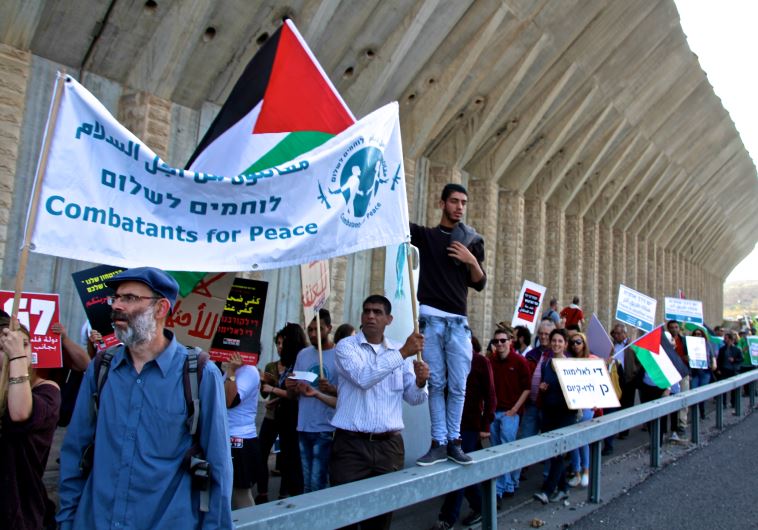Palestinian, Israeli protesters: ‘The last day of the occupation is the first day of peace'
Some of the activists waved large Palestinian flags that fluttered next to the passing cars and others had held olive branches.
 Israelis and Palestinian rally for peace along Route 60 in the West Bank on Friday(photo credit: TOVAH LAZAROFF)Updated:
Israelis and Palestinian rally for peace along Route 60 in the West Bank on Friday(photo credit: TOVAH LAZAROFF)Updated: